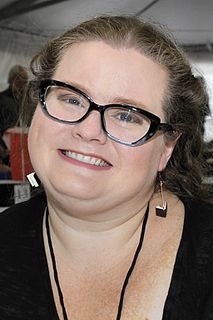A Quote by Groucho Marx
Anyone buying this book is going to be out a tidy sum if he is sucked in by the title. I wish I could write a real sexy book that would be barred from the mails. Apparently nothing whets a reader's appetite for literature more than the news that the author has been thrown into a federal pokey for disturbing the libido of millions of Americans.
Related Quotes
Nothing detains the reader's attention more powerfully than deep involutions of distress, or sudden vicissitudes of fortune; and these might be abundantly afforded by memoirs of the sons of literature. They are entangled by contracts which they know not how to fulfill, and obliged to write on subjects which they do not understand. Every publication is a new period of time, from which some increase or declension of fame is to be reckoned. The gradations of a hero's life are from battle to battle, and of an author's from book to book.
When I choose the title [for my book], which was my favorite title, I felt sure there was going to be a dozen books maybe with that name already because it's so obvious to me that that's the message. I was surprised it hasn't been the title of a single book. Well, there is a Shel Silverstein children's book called Falling Upwards. But no one has chosen Falling Upward as a title and I'm very happy it's right on the cover.
You have to surrender to your mediocrity, and just write. Because it's hard, really hard, to write even a crappy book. But it's better to write a book that kind of sucks rather than no book at all, as you wait around to magically become Faulkner. No one is going to write your book for you and you can't write anybody's book but your own.
There are many readers of the book, who don't know anything about the authors and the artists. There is more than one author. It doesn't matter, if you can't make the reader dive into the story and surround him with that environment and those characters. That's an experience that lasts longer than figuring out who did what. I think that's what makes our working relationship better, it helps us to make a book that feels unique and not like different voices.
I wrote a book. It sucked. I wrote nine more books. They sucked, too. Meanwhile, I read every single thing I could find on publishing and writing, went to conferences, joined professional organizations, hooked up with fellow writers in critique groups, and didn't give up. Then I wrote one more book.
Write what you want to read. So many people think they need to write a particular kind of book, or imitate a successful style, in order to be published. I've known people who felt they had to model their book on existing blockbusters, or write in a genre that's supposed to be "hot right now" in order to get agents and publishers interested. But if you're writing in a genre you don't like, or modeling yourself on a book you don't respect, it'll show through. You're your first, most important reader, so write the book that reader really wants to read.
Authors have a greater right than any copyright, though it is generally unacknowledged or disregarded. They have a right to the reader's civility. There are favorable hours for reading a book, as for writing it, and to these the author has a claim. Yet many people think that when they buy a book they buy with it the right to abuse the author.


































